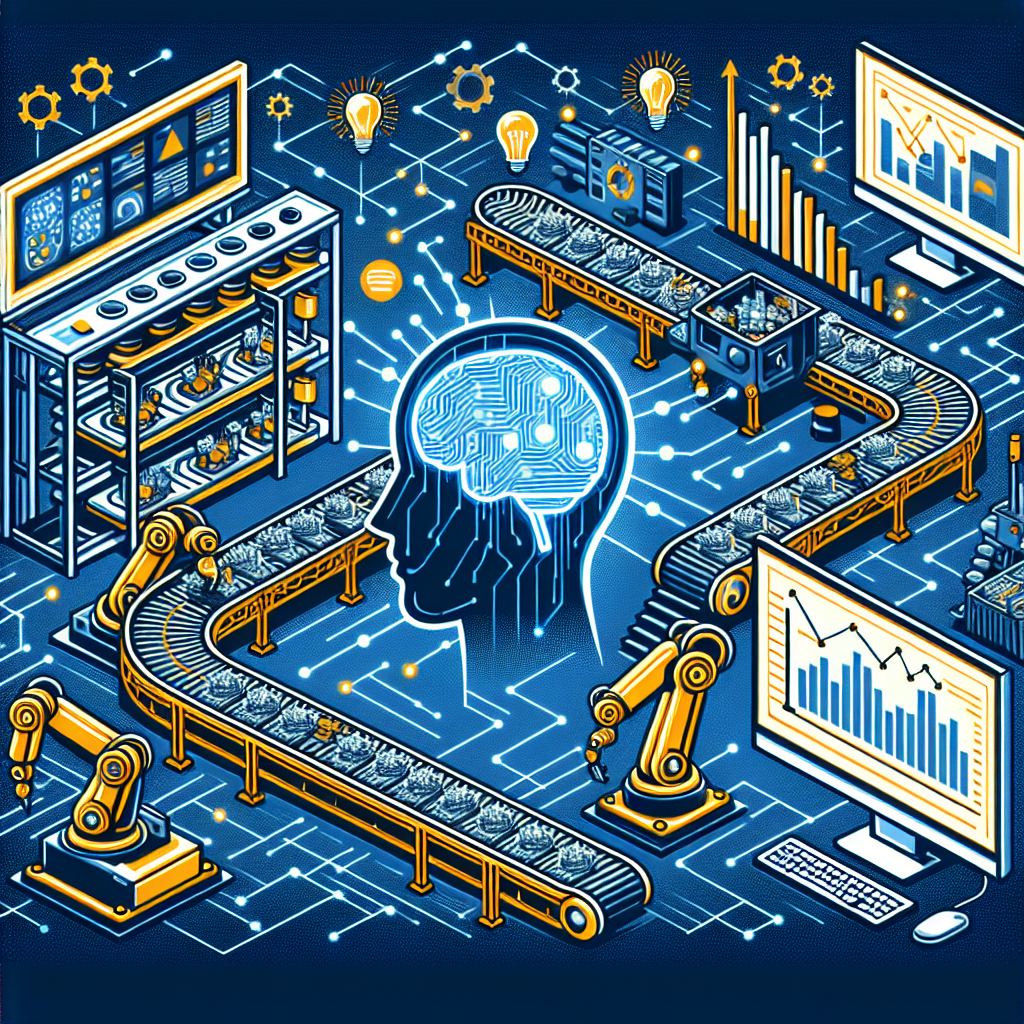In recent years, the integration of artificial intelligence (AI) into various industries has become increasingly prevalent. One area where AI has shown significant promise is in quality control processes. By leveraging AI technology, companies can enhance their quality control efforts, leading to improved efficiency, accuracy, and overall product quality.
AI Integration in Quality Control Processes
Quality control is a critical aspect of manufacturing and production processes, as it ensures that products meet the required standards and specifications. Traditionally, quality control has been a manual and time-consuming process, with human inspectors tasked with identifying defects and inconsistencies in products. However, with the advancements in AI technology, companies are now able to automate and streamline their quality control processes, leading to faster and more accurate results.
One of the key ways in which AI is being integrated into quality control processes is through the use of computer vision technology. Computer vision systems are able to analyze visual data, such as images or videos, and identify patterns, defects, and anomalies in products. By training AI algorithms on large datasets of images, companies can teach the system to recognize common defects and deviations from the standard, allowing for more efficient and accurate quality control inspections.
Another way in which AI is improving quality control processes is through the use of predictive analytics. By analyzing historical data and identifying patterns and trends, AI systems can predict potential quality issues before they occur, allowing companies to take proactive measures to prevent defects and ensure product quality. This proactive approach to quality control can help companies save time and resources by addressing issues before they escalate and impact production.
Furthermore, AI technology can also be used to optimize quality control processes by automating decision-making tasks. By setting up AI systems to make real-time decisions based on quality control data, companies can reduce the risk of human error and ensure consistent and objective evaluations of product quality. This can lead to more reliable and repeatable results, ultimately improving overall product quality.
FAQs
Q: How can AI technology improve the accuracy of quality control inspections?
A: AI technology, such as computer vision systems, can be trained on large datasets of images to recognize common defects and anomalies in products. By leveraging AI algorithms to analyze visual data, companies can improve the accuracy of quality control inspections and identify issues that may be missed by human inspectors.
Q: What are some of the benefits of integrating AI into quality control processes?
A: Some of the benefits of integrating AI into quality control processes include increased efficiency, accuracy, and consistency. AI technology can automate and streamline quality control inspections, leading to faster results and improved product quality. Additionally, AI systems can help companies identify potential quality issues before they occur, allowing for proactive measures to be taken to prevent defects.
Q: How can companies implement AI technology into their quality control processes?
A: Companies looking to implement AI technology into their quality control processes can start by identifying areas where AI can be most beneficial, such as in visual inspections or predictive analytics. They can then work with AI experts or consultants to develop and train AI algorithms to meet their specific quality control needs. Additionally, companies can invest in AI software and tools that are designed for quality control applications and integrate them into their existing systems.
In conclusion, the integration of AI technology into quality control processes is helping companies improve the efficiency, accuracy, and overall quality of their products. By leveraging computer vision, predictive analytics, and automated decision-making, companies can streamline their quality control efforts and ensure that products meet the required standards and specifications. As AI technology continues to advance, we can expect to see even more innovative solutions for quality control processes, ultimately leading to better products and increased customer satisfaction.

